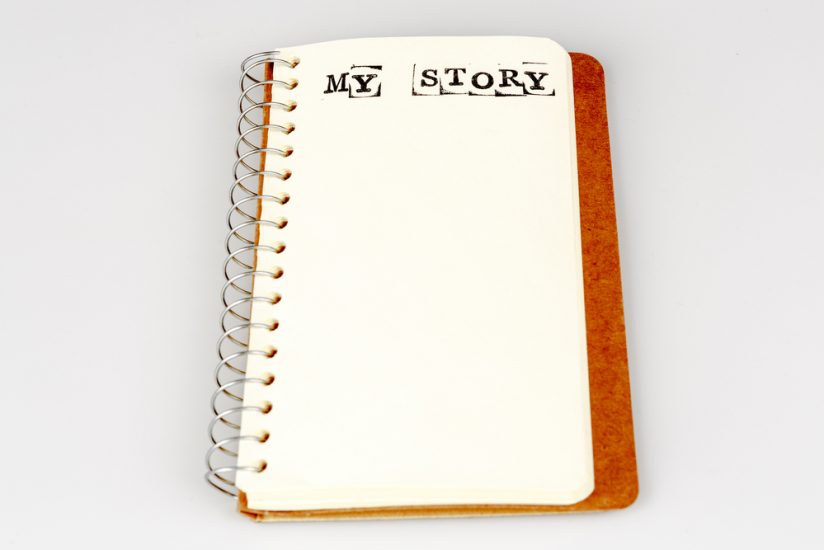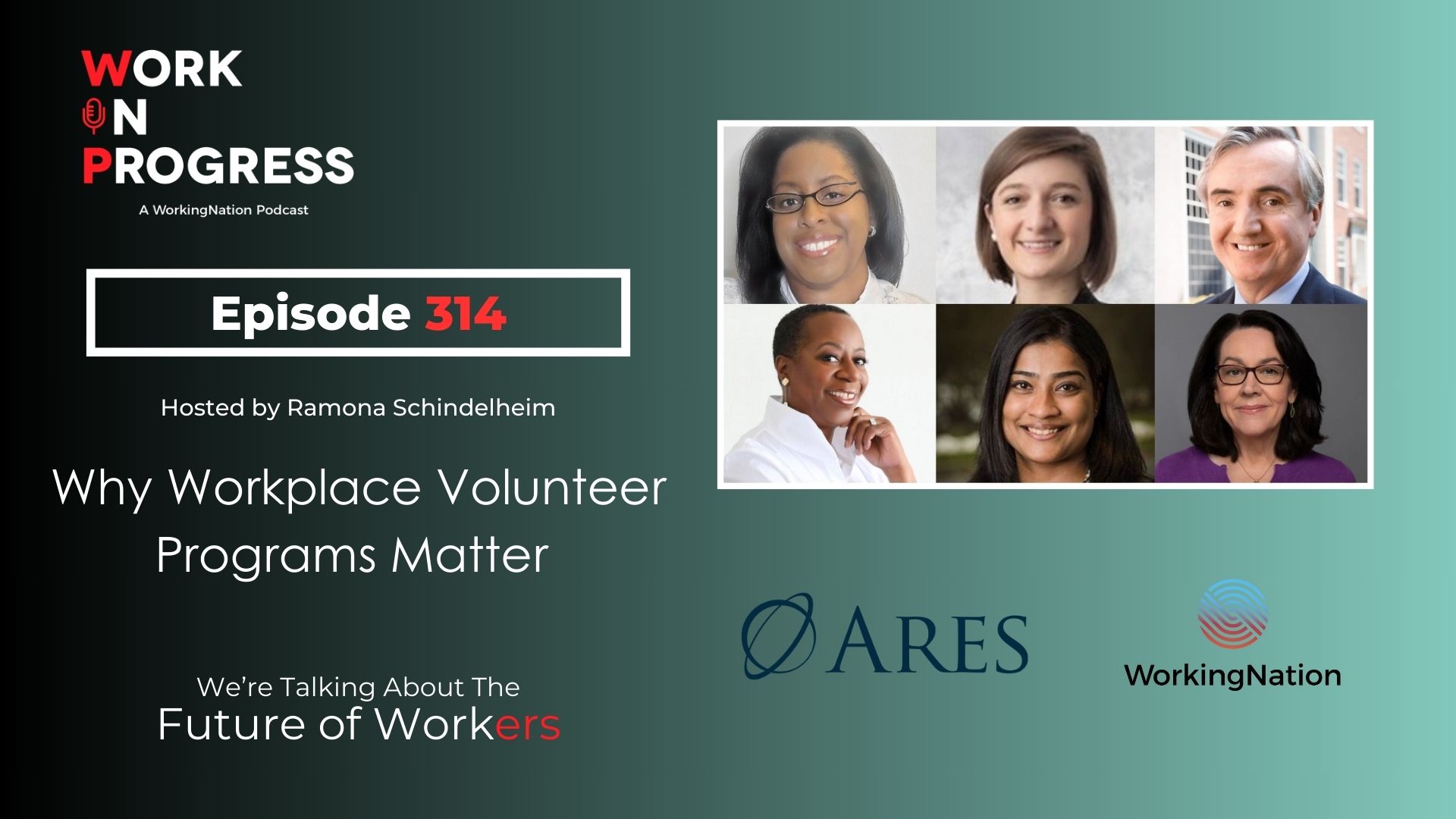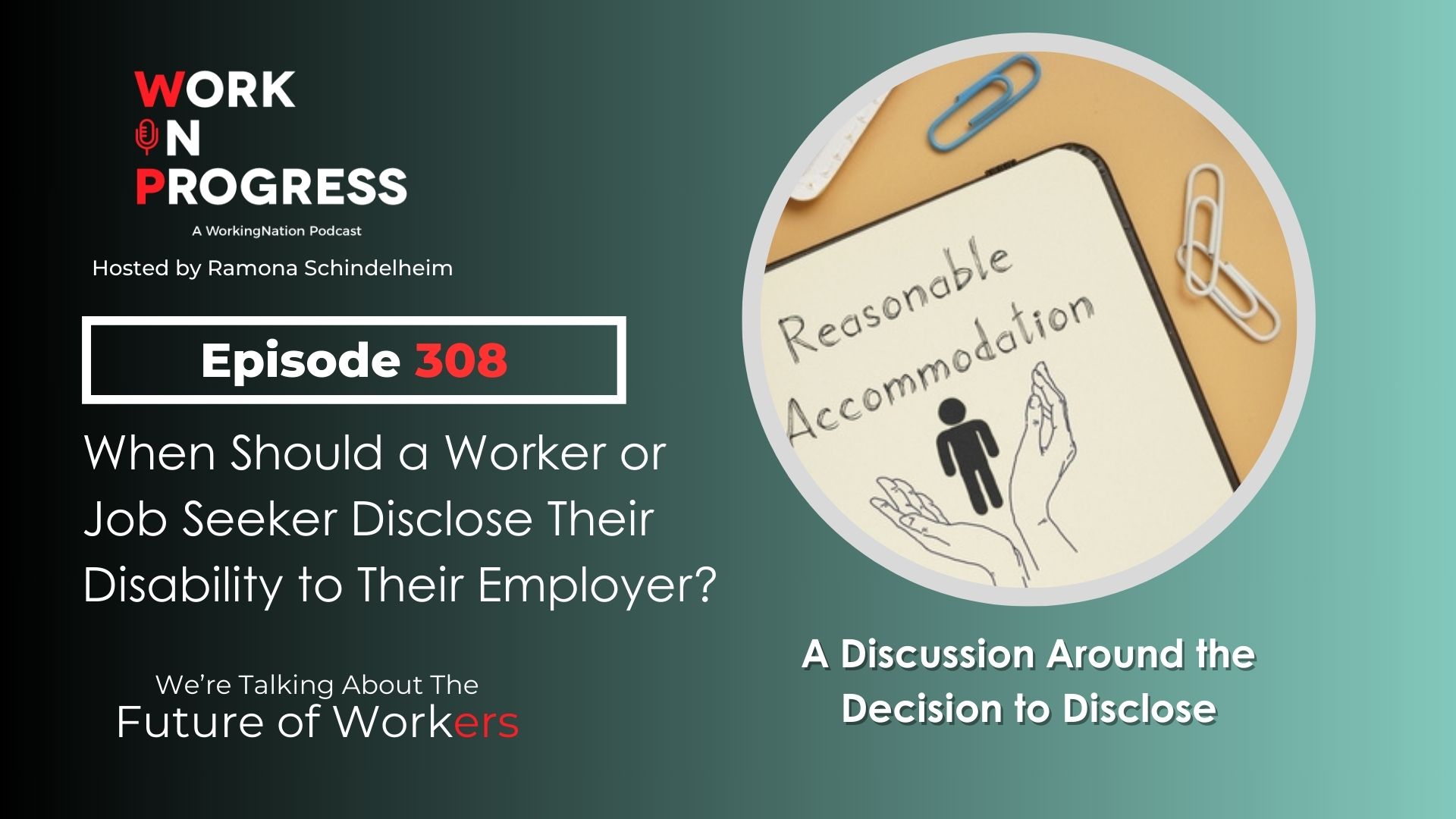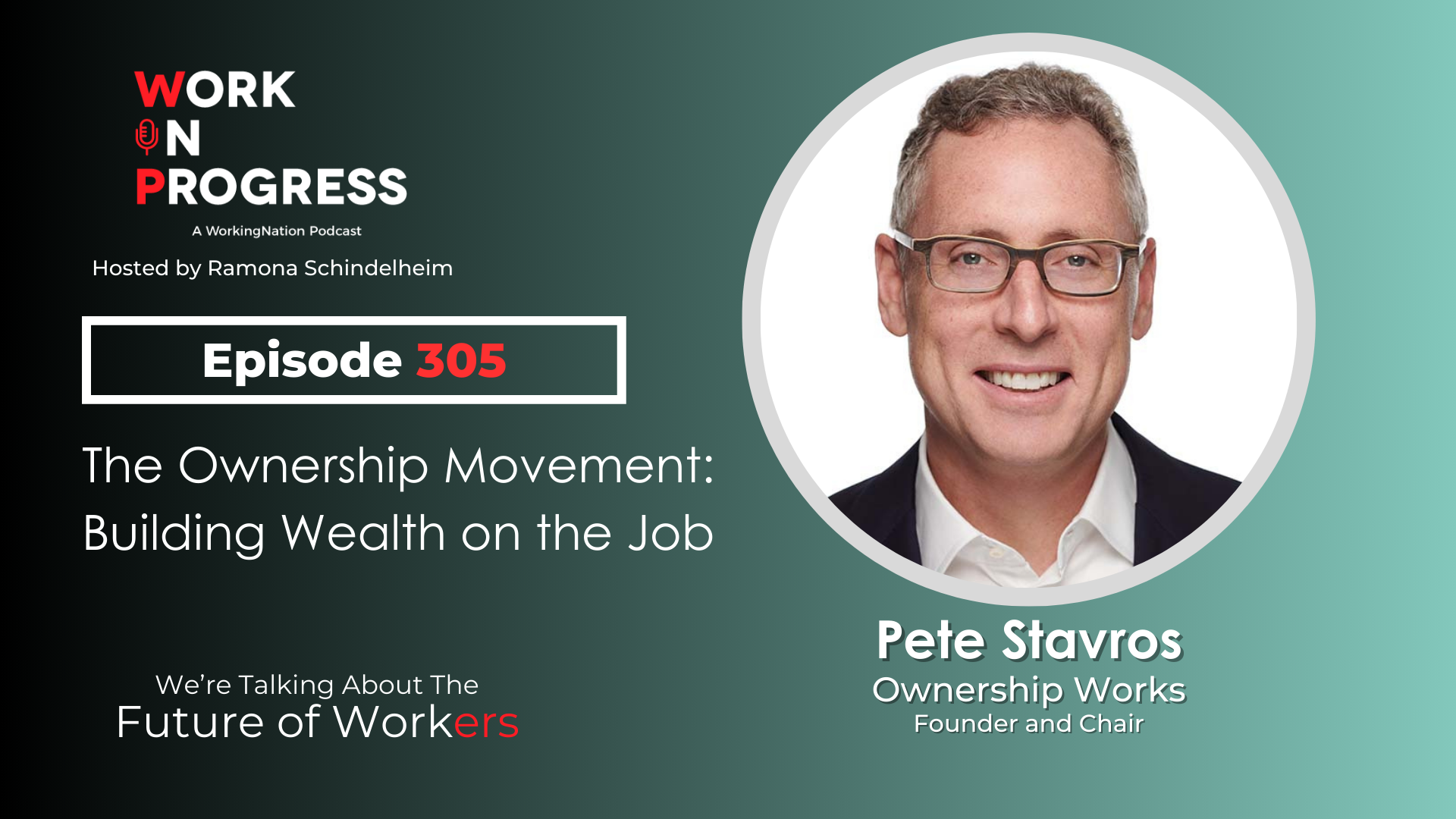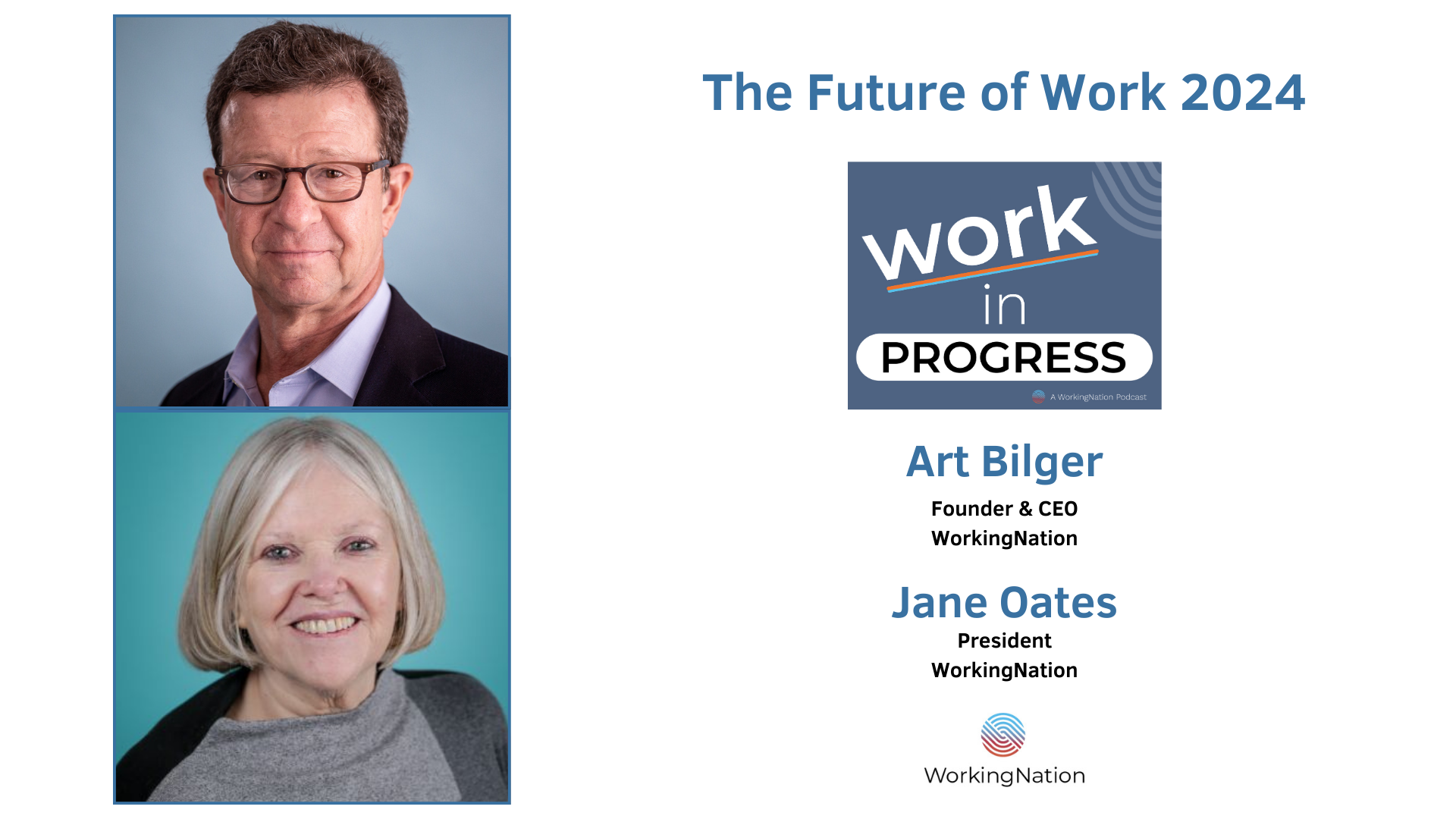WorkingNation is proud to have Mick Kubiak as our featured writer for January. Kubiak is a licensed Marriage and Family Therapist who specializes in parent counseling and life coaching. She is based in Los Angeles where she is a mother and meditation teacher. You can read her previous articles here.
Whenever I suddenly notice that I feel awful — anxious or despairing or afraid — I ask myself, “What story am I telling myself right now?”
I will often ask my clients the same thing when I notice they’ve slipped into a fugue of some kind in the course of a session. When something big happens in our lives — the loss of a job, for example, or a breakup — we often tell ourselves stories about it, sometimes without even realizing it. For me, my dark feelings are like an alarm system letting me know that I’ve got a story going, and I would be wise to check it out.
We have our own personal stories about whatever is going on in our lives, and we also have the stories the culture we live in tells about whatever is going on. There are stories about unemployment, divorce, adoption, being single, aging, dying, you name it. Some of them come from our personal pasts, some of them come from the headlines in the daily news. Innocently, we believe them, as if they are true.
One of my favorite things in the world is when we all find out that something “they” have been telling us is practically poison turns out to be really good for us, or vice versa. One recent example of this is the research showing that people who drink coffee every day suffer less cognitive impairment with aging and also less cardiovascular disease.
This makes me very happy, not only because I am a devoted fan of coffee, but also because it shows me, yet again, how important it is to question the stories we hear, and the stories we tell ourselves.
Many of my mind’s most horrifying stories come from articles in the newspaper about some study that was done that supposedly proves that something awful is true — even worse than the stories about coffee if you can imagine.
For example, when I got divorced, my mind was like the Edgar Allan Poe of stories about the terrible fates that befall the children of divorce. This was entirely based on headlines and articles about divorce, many of which turn out to be based on flawed research from the 1970’s. Nevertheless, virtually everyone believed them, for decades, and repeated them over and over, as if they were true.
At times, I would become so entranced by these tales of doom and gloom that I could barely function. It was almost like I was under a spell and couldn’t wake myself up. One day, my daughter was trying to get my attention and I couldn’t even really see her — this happy little person living in the moment, wanting to have fun with me — because my mind was playing film loops of her multiple divorces in her 20’s and 30’s, caused by her inability to trust, caused by me getting divorced.
Fortunately, she is a very persistent person, and she just wasn’t going to give up on me. Her need for my presence, and her creative bids for affection, eventually snapped me out of my dark reverie and I suddenly returned to reality, which was quite lovely. Nothing bad was happening, in reality. It was a sunny day and my daughter and I were together, safe and sound, in our two bedroom house. I was able to be present in the moment with her and realized that it is moments like these, of warmth and connection, that determine who a person becomes, much more than any single event in a life.
After that, I questioned the hell out of those stories and wrote a new story about why the stories we hear and tell ourselves about divorce are simply not true. As Byron Katie often remarks, reality is much kinder than our own minds, most of the time.
Unemployment elicits the same kind of nightmarish storytelling both personally and culturally, and many people, already struggling with the practical issues related to being unemployed, are also coping with their own inner Edgar Allan Poes, weaving tales of poverty and desperation. If this is you, the first question you have to ask is, what will break the spell? How can we reveal the man behind the curtain — the storyteller — and wake up to reality?
As always in life, there’s more than one way to skin a cat, and this problem of scaring ourselves with our stories is no different. For me, in that moment with my daughter, what woke me up was a very tenacious and loving soul who needed me enough that I was forced to return to reality, much to my own relief. But we can also do this for ourselves, in sometimes surprisingly simple ways — smelling coffee beans; feeling the physical support of the ground beneath us, the softness of the chair we are sitting on.
One simple but surprisingly effective practice I’ve been taught involves looking around you and finding three objects that please or interest your eye.
Right now, where I am sitting, my eyes are drawn to a geometric silver lamp; a small bronze reclining Buddha painted teal and gold; and an oblong purple candle. When I allow myself to really look at each of these objects, things begin to change for me. My breathing evens out and my thoughts settle. The stories I’m telling myself lose momentum, and the more I focus on something I can see and touch, the more awake, and the less haunted, I feel.
Next time your inner Stephen King is taking you on a scary ride, try waking yourself up by paying close attention to the room in which you are standing. Or, if you’re outside, tune in to that — the sun on your face, the wind shaking the leaves on the trees, the sound of your own footsteps.
Sometimes just asking, “What story am I telling myself?” is enough. Once you drop the story, and locate yourself in reality, you can pick up whatever problem you are facing and deal with it one moment at a time.
Join the Conversation: Share your thoughts on Mick’s latest article on our Facebook page.
Connect with Mick: Via email or by setting an appointment through 310-593-4216. Download the Evenflow app for Mick’s meditation training.

